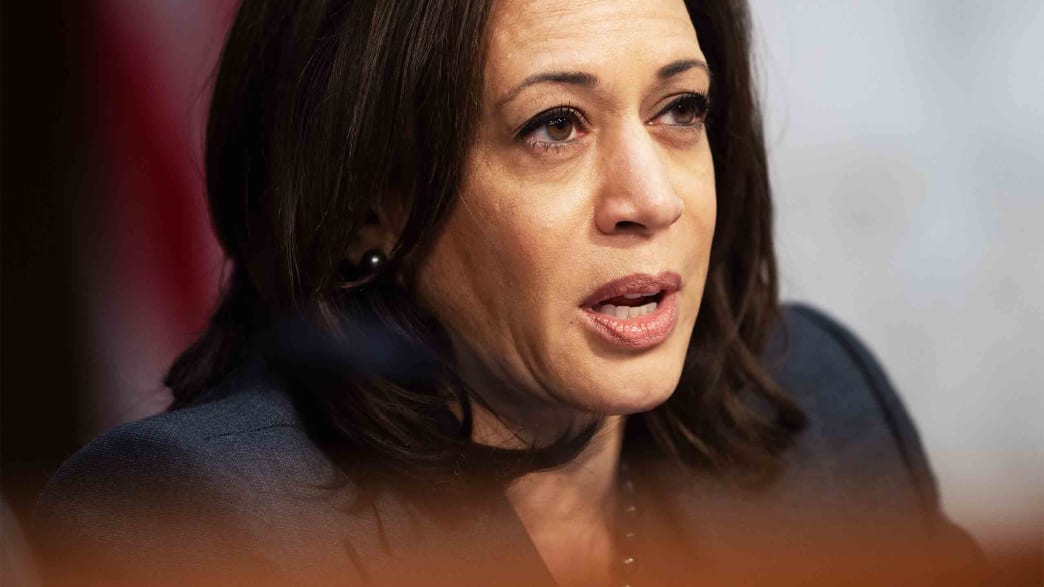Kamala Harris’ A.G. Office Tried to Keep Inmates Locked Up for Cheap Labor

Ordered to reduce the population of California’s overcrowded prisons, lawyers from then-California Attorney General Kamala Harris’ office made the case that some non-violent offenders needed to stay incarcerated or else the prison system would lose a source of cheap labor.
In 2011, the Supreme Court ruled in Brown v. Plata that California’s prisons were so overcrowded that they violated the Constitution’s prohibition of cruel and unusual punishment. Three years later, in early 2014, the state was ordered to allow non-violent, second time offenders who have served half of their sentence to be eligible for parole.
By September 2014, plaintiffs in the class-action lawsuit were back in court, accusing California of slow-walking the process, which lawyers for Harris’ office denied.
According to court filings, lawyers for the state said California met benchmarks, and argued that if certain potential parolees were given a faster track out of prison, it would negatively affect the prison’s labor programs, including one that allowed certain inmates to fight California’s wildfires for about $2 a day.
“Extending 2-for-1 credits to all minimum custody inmates at this time would severely impact fire camp participation—a dangerous outcome while California is in the middle of a difficult fire season and severe drought,” lawyers for Harris wrote in the filing, noting that the fire camp program required physical fitness in addition to a level of clearance that allowed the felon to be offsite.
Not only that, they noted, draining the prisons of “minimum custody inmates” would deplete the labor force both internally and in local communities where low-level, non-violent offenders worked for pennies on the dollar collecting trash and tending to city parks. A federal three-judge panel ordered both sides to confer about the plaintiffs’ demands, and the state agreed to extend the 2-for-1 credits to all eligible minimum security prisoners.
“Once we ridiculed and flagged them for that, they changed their tune, but that was their initial response,” Donald Specter, executive director of the Prison Law Office and lead counsel on Brown v. Plata, said.
Harris, for her part, told BuzzFeed News two months after the arguments were made on her behalf, that she was “shocked” by the argument, telling the publication she was looking into it.
Asked about the case this week, Harris’s presidential campaign said she took action.
“As she said at the time, Senator Harris was shocked and troubled by the use of this argument. She looked into it and directed the department’s attorneys not to make that argument again,” said spokesman Ian Sams. “Her office, on behalf of the state corrections’ department, then came to the table with the plaintiffs’ representatives to negotiate an agreement, which the court subsequently approved, that led to an expansion of the 2-for-1 credits.”
The incident is just a small part of Harris’s long career as a prosecutor, which has drawn scrutiny from Democrats and activists who describe her as a latecomer to the social justice movement.
“As far as I know, she did very little if anything to improve the criminal justice system when she was attorney general,” Specter said.
“The way I look at it is, she was really late to the party and more importantly when she had the authority to do something as attorney general she was absent,” he said. “I’m very skeptical of her views of criminal justice at this point, she basically carried on the policies of her predecessor for the most part in battling us on getting the prison population down and anything else that the government wanted to do to prevent prison conditions from improving.”
It’s a criticism Harris attempted to head off in her book The Truths We Hold, where she describes herself as a “progressive prosecutor” who used "the power of the office with a sense of fairness, perspective, and experience, someone who was clear about the need to hold serious criminals accountable and who understood that the best way to create safe communities was to prevent crime in the first place.”
The criticism has come anyway.
“Time after time, when progressives urged her to embrace criminal justice reforms as a district attorney and then the state’s attorney general, Ms. Harris opposed them or stayed silent,” Lara Bazelon, a law professor and the former director of the Loyola Law School Project for the Innocent in Los Angeles, wrote in a blistering op-ed in The New York Times a week before Harris formally launched her campaign.
Still, other criminal justice advocates say Harris’s Senate career has given them hope. Inimai M. Chettiar, director of the Justice Program at the Brennan Center for Justice said Harris was like other potential 2020 contenders who were similarly “pro-mass incarceration” in the '90s and 2000s, had realized their mistakes, and changed course.
“I think her record in the Senate is very good,” Chettiar said, noting that Harris was one of a small group of senators who objected to an early version of the First Step Act, the bipartisan criminal justice law that passed late last year, because it lacked crucial sentencing reform provisions.
“I don’t even know that I would say that I think her record is a little bit better in the Senate. I actually think she’s been showing a lot of leadership in the Senate,” Chettiar said. “I think what remains to be seen is what kind of criminal justice platform she actually brings forward.”
She added, “So if she brings something forward that’s very watered down, then we’ll know, but if she brings forth something bold, then that’s a different story.”




No comments:
Post a Comment